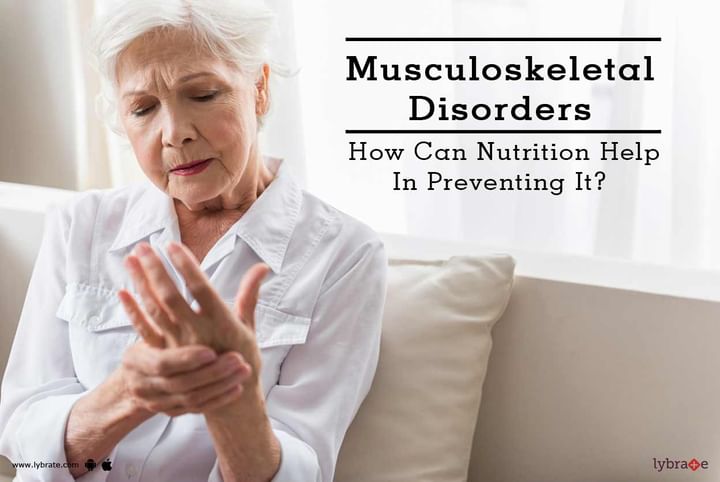Musculoskeletal Disorders - How Can Nutrition Help In Preventing It?
Health of the musculoskeletal structures of the body is largely dependent on the nutrition. There is a close relationship between the health of bones, muscles and joints of the body and the routine diet. A well balanced, healthy meal can help in management and prevention of various bone-related and musculoskeletal disorders.
If adequate amount of nutrition is not received by the body then the general health of the body is put at a risk of contracting various diseases and disorders, with musculoskeletal disorders affecting a large population. The most important nutrients that play an essential part of maintaining bone health are Vitamin D and calcium. The bone tissues comprise a large amount of calcium, which is the reason why calcium is termed the building block of the bone tissue.
The highest proportion of a body’s calcium content is present in the skeleton. The major role of Vitamin D is to help the body in absorbing calcium. Other nutrients like proteins, vitamins and minerals also contribute in maintaining and improving the bone and muscle health.
1. Calcium – The bones present in the human body contain almost 95 percent calcium. Calcium is derived from various food items. Milk and dairy products are one of the best sources of calcium. If the physician suggests to increase the calcium intake, then along with dairy products, calcium supplements can also be taken on a regular basis to increase the body’s calcium content.
2. Vitamin D – This vitamin belongs to the fat-soluble vitamins category and is necessary for helping the body to absorb calcium. This vitamin is received mainly from sunlight, but due to an increase in trend of indoor workplaces, it has been observed that many people suffer from the deficiency of this vitamin very commonly. In order to overcome its deficiency, supplements of Vitamin D can be taken. Other sources of vitamin D are egg yolk and fatty fish.
3. Protein – Dietary protein is necessary for an optimal gain of the bone mass during the growth years of an individual. Proteins are the building blocks of the body and are essential for the body’s natural wear and tear. Deficiency of protein causes lack of muscle strength which can also hamper the repairing capacity of the body after an injury. Legumes, pulses, lean meat, fishes, nuts are excellent sources of proteins that should be consumed regularly.
4. Vitamin B complex – The vitamins present in the B-complex are often associated with the maintenance of bone density levels. It has been found out that deficiency of these vitamins can increase fracture risk in a person.
5. Magnesium – This mineral plays an important role in bone formation. Its absorption in the body tends to decrease with ae, hence, it is recommended to take supplements in the elderly population. Good sources of magnesium are green vegetables, nuts, legumes and fish.
6. Zinc – This mineral has been found to be linked with the renewal of bone tissue. It also plays an important role in bone mineralization. Deficiency of zinc is associated with protein malnutrition in children. Good sources of zinc include poultry, cereals, pulses and red meat.
To maintain an optimum musculoskeletal health, it is necessary to consume adequate nutrients. Supplementation of the nutrients can also be done to provide the body with necessary nourishment.



+1.svg)
